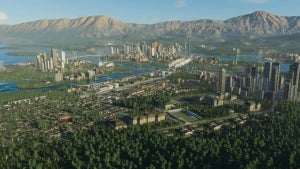Water is life. It’s not just a catchy slogan: it’s also a reality. None of the planets we are exploring in outer space can support life of any kind, because they have no water to survive on. But that may change thanks to a new tool created by astronomers at Cambridge University with which they will be able to take one of the biggest steps towards colonizing other planets.
One step closer to Planet Express
The tool in question is a technique for finding water in space that uses the size of an exoplanet to estimate how much liquid lies beneath its surface. We don’t mean rivers, seas and waterfalls, but a certain amount of water locked in rocks and minerals kilometers from the surface. It’s not that flashy, but it may be the beginning of the creation of life (or human survival).

If we can know how many of these minerals are inside a planet, it is possible to get the water out of its interior, bring it back to the surface, and be able to replenish, for example, oceans that once disappeared due to intense heat or radiation. “This model gives us a limit on how much water a planet can carry in its interior, based on those materials and their ability to have water on their surface,” the scientists comment. Will we one day be able to bathe in Saturn’s oceans? Let’s not get ahead of ourselves.
For the time being, scientists will use this new branch of the search for planets to find those most likely to have alien life and study them more closely after triaging them. Of course, do not think that because a planet is huge it will have a lot of water in its interior: in fact, scientists point rather to planets similar in mass to Earth. For example, Venus. It is suspected that before it was the hottest planet in the solar system at about 475 degrees nothing, it had water on its surface.
If that is the case, we could help cool the planet thanks to this tool. Who knows? Maybe in the next few decades we will be able to go on a vacation resort to a small Venusian cove…


